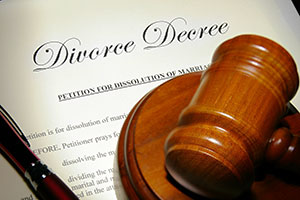 This type of divorce in Thailand entails significant financial expenses from the parties involved as it includes the court in settling their differences which also means, they have to pay for the court and other legal fees in order to obtain a divorce decree.
This type of divorce in Thailand entails significant financial expenses from the parties involved as it includes the court in settling their differences which also means, they have to pay for the court and other legal fees in order to obtain a divorce decree.
Who can file for a contested divorce in Thailand?
In a general sense, only couples who have registered their marriage in Thailand can apply for and obtain a court decision to end their marriage.
However, a couple whose marriage was not registered in Thailand may opt to ask a Thai court to take into its jurisdiction their case for a divorce if:
- At least a party is a Thai national and;
- At least a party or both of them have been in Thailand for some time as residents or as workers.
Grounds for Divorce
The grounds for divorce must be present in order to proceed with the idea of having a contested divorce in Thailand and these will lead to the provisions set by the Civil and Commercial Code.
- The husband has taken another woman as his wife.
- The wife has committed adulterous acts against her husband.
- One party is guilty of misconduct.
- One party has caused serious harm on the other’s body and or mind.
- One party has done serious insults to the other party and or to the other party’s ascendants.
- A spouse has left his/her spouse for at least a year.
- A spouse has been put behind bars for at least a year.
- Both husband and wife have agreed to live apart for more than three (3) years on their own recourse or;
- The husband and the wife lived apart for more than three (3) years.
- A spouse has disappeared for more than three (3) years.
- A spouse is not able to provide his/her obligation of maintenance or support.
- A spouse has a condition of insanity for at least three (3) years.
- A spouse has failed to sustain the bond of good behavior.
- A spouse has a serious (communicable and dangerous) disease.
- A spouse has physical disadvantage.
Which party can file a contested divorce?
It is the spouse which has been caused with undue injury who can file for a divorce.
Who can file the case?
The plaintiff can file the case through his/her lawyer although he/she may opt to file the case personally with the guidance of his/her lawyer.
Is it an option for the plaintiff not to appear in court hearings?
Unfortunately, he/she has to appear in court at least once and give the court his/her testimony against the other party.
In case that the erring party fails to appear before the court, he/she will be declared by default.
What is a default?
Default means the court will only consider the merits of the case on the testimony and evidence presented before it by the active party. Further, it also means that the erring party loses his/her right to present his/her evidence against the active party.
The Needed Evidence
The plaintiff’s lawyer will give a due study on the strength and validity of the grounds for a contested divorce. Also, he will provide the plaintiff with his assessment of these grounds and how these can affect or determine the course of the case.
Duration of the Case
It depends upon the circumstances but on average, the court can finish hearing the case around six (6) months.
What will happen to the marital properties as well as the welfare of the children?
The court allows the couple to reach an amicable settlement with regards to properties and child custody. If ever the involved parties indeed reach an agreement, the court will include such on its decision.
However, if they failed to settle for an agreement, it will be the court that will determine the fate of the properties and of the child by basing on the applicable Thai laws.
What should be done after the court has reached a decision?
If one or both parties are foreigners, he/she/they need to have the decision translated into English and have it legalized with the Ministry of Foreign Affairs. He/she/they must also inquire with their respective embassies in the Kingdom if the divorce should be filed with the said office.
On the other hand, the Thai national spouse should file the divorce with the Amphur office nearest to his/her place of residence and have it recorded there. Additionally, if a Thai woman happens to be the other party, she should report the divorce and take her maiden name again.
What if the case is already filed at court but after filing, both parties changed their minds and want to settle their disagreements outside of court?
If the divorce case has already been filed with the court and they manage to arrive at the conclusion that an uncontested divorce will benefit them the most, the couple may withdraw the contested divorce case.
